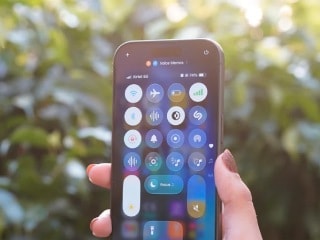- Home
- Internet
- Internet News
- Google CEO Sundar Pichai, in Leaked Video, Says Company Is 'Genuinely Struggling' With Employee Trust
Google CEO Sundar Pichai, in Leaked Video, Says Company Is 'Genuinely Struggling' With Employee Trust
Google has sought to tamp down the freewheeling discussions its employees conduct on internal online forums.
Google CEO Sundar Pichai in the leaked video acknowledged the company had violated some employees' trust
Google CEO Sundar Pichai acknowledged the tech giant is struggling with how to deal with internal debate over controversial topics and the company defended hiring a former government official who backed the Trump administration's travel ban, according to video of an all-hands meeting obtained by The Washington Post. At the closed-door meeting Thursday, a weekly gathering known as TGIF, Pichai and other top executives sought to quell employee discontent and defended the hiring of Miles Taylor, a former Department of Homeland Security official, while chastising employees for airing their gripes publicly.
Pichai acknowledged the company had violated some employees' trust. "We are genuinely struggling with some issues - transparency at scale," he said, according to the video.
"To the question about your trust, I think it's one of the most foundational things for the company," he said at the meeting, which took place at Google's headquarters in Mountain View, California. "I take it seriously."
He said he tries "to understand when I feel there is something which caused breaking of trust and see what we can do to improve," adding that "it's definitely gotten harder to do this at the scale we are doing it."
Google has sought to tamp down the freewheeling discussions its employees conduct on internal online forums, which have fuelled employee walkouts and public relations crises. It published a memo over the summer that reminded workers to eschew political discussions that might upset others. The company said it would monitor forums and intervene when necessary.
But employees have increasingly pushed back against management. The large-scale walkout last year followed reports of payouts to executives accused of sexual misconduct. Some employees alleged that the company retaliated against them for participating, which Google denied.
Google is struggling to maintain its famously uninhibited culture while also responding to criticism from the White House over alleged anti-conservative bias and from employees who have openly protested against proposed defense projects and other initiatives.
Google spokeswoman Gina Scigliano declined to comment.
Google is not the only company grappling with employee dissent. Earlier this month, Facebook employees leaked audio of an all-hands meeting featuring chief executive Mark Zuckerberg talking candidly about the presidential election, company rival Twitter and antitrust concerns. In response, the embattled social media giant streamed its next all-hands meeting live to the public.
Weekly all-hands meetings such as Google's TGIF are a part of Silicon Valley's culture of transparency, giving regular employees the opportunity to ask tough questions of management in an open forum, typically a holdover from their days as start-ups. But for the biggest companies, leaders may be loath to fully address sensitive matters, leaving some employees dissatisfied.
"I think we need to figure out how to make this work better so we can actually drive the open culture we have," Pichai said at the all-hands meeting. "That needs to come with some balance - you've clearly seen the amount of leaks we are seeing."
"We care about getting it right, and we are striving to do better," he said.
At the meeting, Paul Wilcox, a community manager for internal communications tools, said Google removed an online question submitted ahead of the event by an employee about the hiring of Taylor, chief of staff to Kirstjen Nielsen when she was homeland security secretary. Wilcox said the question violated Google's guidelines, without providing details. Some Google employees were upset because they believed Taylor held beliefs opposing management's, including enforcing a ban on immigration from some majority-Muslim countries and family separation at the border, BuzzFeed reported earlier.
"Are we supporting the border camps now?" asked an employee in another online question, referring to Taylor's hiring in its public policy office.
Karan Bhatia, a Google vice president for government affairs, defended Taylor's hiring, saying his expertise is in counterterrorism and national security. "That's the role they will be playing with us, not in the immigration space," he said. Appearing to reference the earlier BuzzFeed story, Bhatia said "press reports" about Taylor were inaccurate because Taylor did not formulate the travel ban, though Bhatia acknowledged he had later defended it publicly. (BuzzFeed reported Taylor defended the travel ban.)
He said Google still opposes the travel ban instituted by the Trump administration in 2017. "We have consistently been engaged in litigation challenging it over time," he said.
But many of the questions related to software embedded internally in Google's Chrome browser that employees worried was designed to monitor large gatherings. The software engages when employees try to create meetings for 100 or more workers.
Pichai and others said the intent of the software is not to prevent meetings or to stifle conversation, but they acknowledged that its implementation was flawed. "How do you have a working process and how do you do it at scale with 120,000 people?" Pichai said. "These are good questions. I think we need to think through and come to better answers."
"I think it upset a few people, probably a lot of people," he said, according to the video.
"Community moderation at scale is hard," Pichai said. "In some ways it gives us a sense of the kind of issues we deal with externally on our products when we try to moderate content."
Luiz Barroso, a Google vice president of engineering, acknowledged that the software will eventually help Google monitor internal forums. He showed a version of the software that will ask users to flag inappropriate content, including answers such as "rude behaviour," "confidential information" and "explicit content."
He told the room that the content moderation team "deserves your trust."
Google's Pichai, Barroso and Bhatia chastised workers for leaking information to the press. "There is a degree of, perhaps, mistrust for some in our company towards our colleagues or towards the company that seems really eye-opening to me," Barroso said. "Especially when that kind of mistrust manifests itself by leaks to the press, which in turn can actually put our colleagues in harm," he added, without explaining.
Bhatia later said media stories "are sometimes misleading."
© The Washington Post 2019
Catch the latest from the Consumer Electronics Show on Gadgets 360, at our CES 2026 hub.
Related Stories
- Samsung Galaxy Unpacked 2025
- ChatGPT
- Redmi Note 14 Pro+
- iPhone 16
- Apple Vision Pro
- Oneplus 12
- OnePlus Nord CE 3 Lite 5G
- iPhone 13
- Xiaomi 14 Pro
- Oppo Find N3
- Tecno Spark Go (2023)
- Realme V30
- Best Phones Under 25000
- Samsung Galaxy S24 Series
- Cryptocurrency
- iQoo 12
- Samsung Galaxy S24 Ultra
- Giottus
- Samsung Galaxy Z Flip 5
- Apple 'Scary Fast'
- Housefull 5
- GoPro Hero 12 Black Review
- Invincible Season 2
- JioGlass
- HD Ready TV
- Laptop Under 50000
- Smartwatch Under 10000
- Latest Mobile Phones
- Compare Phones
- OPPO Reno 15 FS
- Red Magic 11 Air
- Honor Magic 8 RSR Porsche Design
- Honor Magic 8 Pro Air
- Infinix Note Edge
- Lava Blaze Duo 3
- Tecno Spark Go 3
- iQOO Z11 Turbo
- Lenovo Yoga Slim 7x (2025)
- Lenovo Yoga Slim 7a
- Lenovo Idea Tab Plus
- Realme Pad 3
- Moto Watch
- Garmin Quatix 8 Pro
- Haier H5E Series
- Acerpure Nitro Z Series 100-inch QLED TV
- Asus ROG Ally
- Nintendo Switch Lite
- Haier 1.6 Ton 5 Star Inverter Split AC (HSU19G-MZAID5BN-INV)
- Haier 1.6 Ton 5 Star Inverter Split AC (HSU19G-MZAIM5BN-INV)






![[Sponsored] Haier C90 OLED TV | Dolby Vision IQ, 144Hz OLED and Google TV in Action](https://www.gadgets360.com/static/mobile/images/spacer.png)








